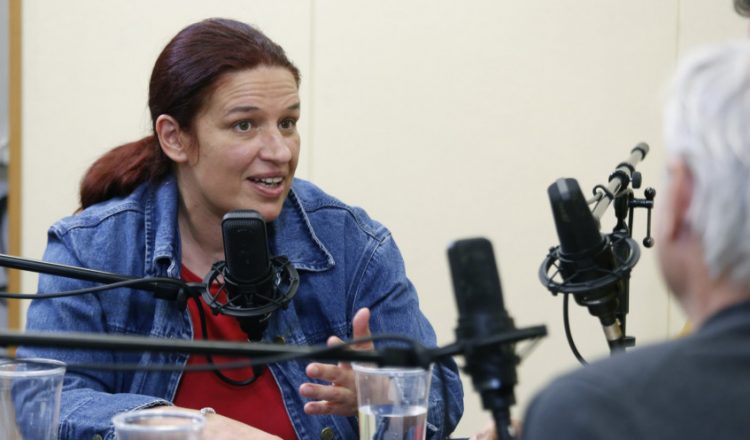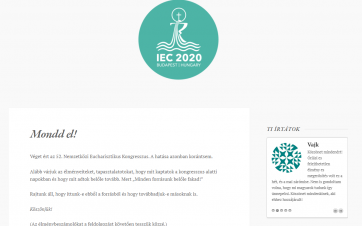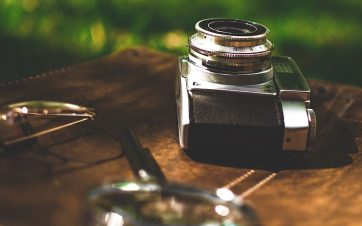
From a proud doctor to a humble beggar

– How did you become a mission doctor?
– I knew already at my age of 12 that I would be a mission doctor. The more obvious it could not have been that this was my way, thus I applied to the medical university. All the same, after a while I had a feeling that it was not going to work. I have become a mother of two, thus I had no idea how to approach or start with achieving my dream. There was no organisation that could have provided the opportunity to get to, for example, a mission location in Africa. It was also questionable who would take care of my personal security so not to be gunned down, not to be attacked. Not to mention the bureaucratic staff, like getting the travel and working licences for a missionary activity. By now I’m well aware of the facts that the hard work of about twenty-thirty people behind-the-scenes was needed in order we could help patients in Nigeria.
- How could you get over on all these?
-Well, when I left five years ago, I did not have yet my own foundation, but I was elected into the team of another organisation. Upon return I started to think over the possibilities of establishing something on my own. As a start, with my husband we wrote and published the book of “Afréka”. We had a plan that by each sold volume one life is to be saved, all in all enabling me to return to Africa. Later it became evident that we could not match up enough with the sales to be able to organise a mission. Thus we started the registration procedure of the Foundation, but no one had the slightest intention to support us. Then I have become friends with András Csókai neurosurgeon, who had turned out to stay in Nigeria already for three times, working in hospital maintained by a Catholic archdiocese. Upon return from his next trip in Nigeria he happily informed me that I would be most welcome by the fathers of the hospital. This was the first own project of the Afréka Foundation. Since then together with András we have organised 16 missions. Goes without saying that we never travel at the same period but on a rotational basis instead. Currently, of course he is my greatest “begging” in Hungary, he is there everywhere through the Catholic media. We are in a big cataclysm, the focus has shifted: the proud remedy has been turned into a humble begging. Here in Africa there is hunger everywhere, fundraising is for rice at the moment, so I feel myself more a beggar than a
doctor.
- According to a 2018 survey, all around the world it is Africa where the most Christians live
-In Africa I experience such a sound and living faith that it would really takea man of not getting converted! 8 millions are living in Onitsha, the city I’m staying right now. 185 parish churches and 12 hospitals are operated by the archdiocese. In Africa I have never ever met a single faithless person, they might not all be Catholics, but all of them are believers. Norhern-Nigeria is more Muslim, that’s where the Boko-Haram is located. Unbelievable horrors, killings of Christians are ongoing in the area that we can hear from the media. It might happen that from one day to the other you just wake up to the fact that everyone you know, and is a Christian is dead in your village. I know a girl, Rebecca, escaping from North to South with her family since a suicide attacker had blown up her school, and by the time she could return, even her home had been completely destroyed.
A mere 10 years ago, only 1.5 millions of people were living in Onitsha, but given the Christian persecution many has moved to the city. In the entire country 150 million out of 200 million are living day by day. Due to the Covid-19 markets have been closed down for 5 weeks, thus masses have lost
their livelihood. Yet, they do not give up their faith, but rather they become martyrs. Mind-blowing! People attend mass daily, a Sunday service meets five thousand participants at a minimum while it lasts for 3 hours. Now, as to the new regulation, a mass cannot exceed one hour, but practically it never works alike. There were no Holy Masses for a month, people here have almost died of it. The majority has neither internet, nor Facebook to watch online broadcastings, on top, many does not have electricity at all.
- The Foundation carries out more and more tasks. Exactly what kind of activities are these?
-We have a medical part for recruiting specialists. The neurosurgeon department is headed by András Csókay, his team has performed more than a hundred surgeries so far; the other department is the internal medicine, I’m heading that of; - and if no coronavirus occasion is on- we go outside to pay visits to the most vulnerable ones with no chance at all for the slightest medical service. We test them for Malaria, AIDS, Hepatitis, and Typhoid as well as for other contagious diseases. This time it can happen that I examine 300 people a day. The third part of our activity is the Nurse Training. This is of extreme importance, since the medical education is so expensive that the Foundation just cannot manage it. We have granted scholarships for those nurses, care workers who would never have a chance for studying without our financial support. The fee of a three years education in a boarding school costs 600 USD a year. By now we have 16 ongoing scholarships. The sad side is that due to the pandemic situation a fourth function had to be added on: the food distribution. Currently our mission has been transformed into a humanitarian organisation, since we have such a serious situation on our hands that we rather spend the donations on rice than on medicines. Due to the Hungarian Catholic Media, the cooperation, and –among others- the Magyar Kurír and the Új Ember readers, we have been able to distribute 4 thousand pcs rice sacks, 25 kilograms each, which measures up the weekly food portion of an average family of 5 kids.
Help together: Here!
Text: IEC Secretariat
Photo: Marcsi Ambrus
Source: Magyar Kurír










